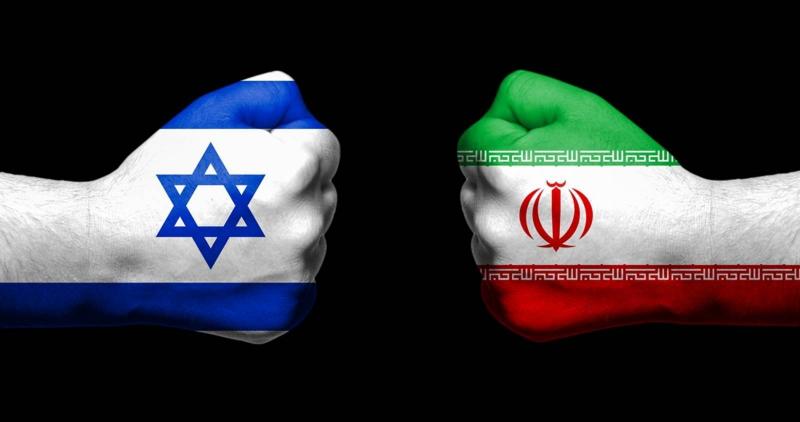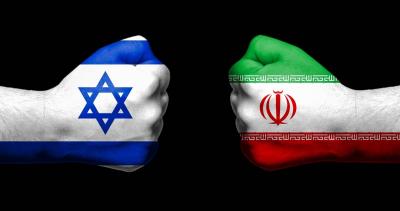Despite rumors of an imminent Iranian response to Israel's assassination of Hamas leader Ismail Haniyeh in Tehran making headlines, a source from the Iranian Supreme National Security Council revealed to the Kuwaiti newspaper "Al-Jarida" that a meeting took place just hours after the assassination at the office of Supreme Leader Ali Khamenei. In this rare and exceptional gathering, Khamenei participated personally, resulting in a decision to take revenge as a lesson for Israel; however, this decision faced various practical complications and deep disagreements between the hardline and moderate factions.
While the government faction pushes for a pragmatic and rational exchange for the revenge of Haniyeh — which surprised Tehran and muddled its plans — seeking economic and nuclear understandings with the United States under the leadership of new president Masoud Bezhakian and his deputy Mohammad Zarif, a hardline faction led by the Revolutionary Guard insists on delivering a crushing blow at any cost, disregarding the potential consequences, to maintain Iran's credibility, which would be lost if it does not take action that satisfies its regional allies.
According to a source who attended the meeting, the Supreme Leader emphasized the need for military proposals aimed at breaking Israel's "fangs" and directed the diplomatic apparatus to use the time available to prepare the international ground for the response. He understood the attack as a message that shatters all global political equations, stressing that if Tehran hesitates to respond, Israel would continue its assassination operations within Iranian territory, as seen in Syria.
Khamenei insisted that he believed the war in Gaza and Israeli provocations would not cease, as Washington is now under the control of a government incapable of taking any action against its ally, and Israeli Prime Minister Benjamin Netanyahu is well aware of this and exploits it. Therefore, the only solution is to escalate to the highest level possible, and if a comprehensive war breaks out, previous rules of engagement, such as not targeting civilians or vital economic locations, should be abandoned, as occurred in the strikes in Beirut, Hodeidah, and Tehran.
Furthermore, although some attendees were concerned that targeting civilians or infrastructure would provide Israel and the United States with a justification to strike Iranian infrastructure and civilian locations, the Supreme Leader affirmed that Iran could withstand such painful strikes. However, the other party must also be evaluated on its capacity to endure similar strikes, considering that US forces and bases in the region would be within the range of retaliation.
He noted that Iranian council meetings have continued since then, occasionally involving representatives from resistance factions to coordinate a response. The new president and his deputy, along with their team, are adamant about the necessity of reciprocal action. They believe that missile and drone launches, regardless of their magnitude, will not affect Israel and its policies, while the Revolutionary Guard insists on the need for a massive, comprehensive operation that ensures a direct assault from Iran and its axis.
Military leaders and security agencies believe that any operation should be postponed until the element of surprise is restored, as any attack during the Israeli-American defensive mobilization would be doomed to failure. Khamenei supports a composite response that includes a military operation, alongside the elimination of Israeli figures or those supportive of Israel.
The Supreme Leader received several preliminary scenarios for revenge, outlined as follows:
1. Iran conducting a direct attack with thousands of missiles and drones, without any warning to international entities, so they would be unprepared to counter the strike, similar to events in mid-April.
2. Resistance factions launching a comprehensive attack coordinated across all fronts against Israel and US bases.
3. Tehran and the axis of resistance retaliating against Israel through assassination operations deep within Israel or in various locations worldwide without needing to launch a missile attack.
4. Suggesting an attack on Israel via electronic operations and cyber warfare.
The source discussed a plan from the Revolutionary Guard involving a simulated strike through Tehran's allies using inexpensive drones and missiles as a cover for a large-scale, devastating attack that would destroy air defense networks and target vital economic interests for at least five days, including operations by Iran's agents to eliminate political and security figures, alongside some scientists deep within Israel.
Additionally, the plan includes targeting Israeli forces besieging Gaza and the military facilities and airports supporting them with an intense missile strike, followed by Palestinian faction elements launching assaults on Israeli soldiers from within the sector. It was noted that Hezbollah and the Houthis had received advanced weapons to participate in the planned attack in recent days.
The delay in response has also been attributed to Tehran's cautions following reports that Netanyahu intends to expand the scope of the war by dispatching 50,000 members of the Zainabiyoun and Fatemiyoun militias to Damascus, augmenting the approximately 150,000 personnel already deployed in Syria and Iraq for potential major conflicts.
Tehran reportedly received four advanced radar systems from Moscow, designed to detect US F35 and F22 fighters, while Iranians await Moscow to supply necessary parts to operate Sukhoi 35 aircraft within a few days.
Amid rising US warnings to both parties in the crisis to avoid escalation, British Foreign Secretary David Lammy warned Iranian counterpart Ali Bagheri Kani that any Iranian attack would result in devastating and catastrophic consequences for the region, before the latter traveled to Jeddah, Saudi Arabia, to attend an extraordinary meeting of the Organization of Islamic Cooperation to discuss the ongoing crimes of the occupation against the Palestinian people, including the assassination of Haniyeh, and its violations of the sovereignty of the Islamic Republic of Iran. This occurred shortly after Hamas chose Yahya Sinwar as the new head of its political bureau to succeed Haniyeh, according to "Al-Jarida."




